Following the Dorper School at Burrawang West,the South African Inspector, Wicus Cronje, came to class our sheep. This was a very useful exercise, as it made us look objectively at our stud sheep with an independent expert, noting both the flocks strengths and weaknesses. We were very pleased with the outcome, we have a large number of Type 4 and 5 home bred sheep. This classing will enable us to refine our breeding by using the very best of our flock. This assists us to further improve the quality of our stud animals with each ensuing generation. Tommorrow morning we are off to the National Dorper Show and Sale at Dubbo. Wednesday the ewes will be judged, Thursday the rams, and on Friday the Sale. The Eastern Region AGM will be held on Wednesday night. Looking forward to catching up with the other breeders and looking at lots of sheep. We thought about showing at Dubbo but we ran out of energy with so much else on at this time.
0 Comments
Dorper School at Burrawang West was great fun. The Dorper Schools are an excellent way to hone your eye for a good dorper, and look at lots of different sheep. Every one that you go to, provides an opportunity to learn from the teacher, as well as from other breeders. We also find that it keeps our head straight about our sheep. It is easy to think that the cute poddy, that you carefully nurtured, is the best sheep on the place. That is, until you come home and realise she has cow hocks, down on her pasterns, loose in the shoulders, x legs, a devils grip, shocking top line, undershot jaw and will probably never lamb. So much for "Lucy". The accommodation at Burrawang is on farm and Jana and Graham Pickles provided the most wonderful hospitality, it almost felt like a holiday.
Wicus Cronje was the South African Inspector and Judge who taught the course and he was a great fund of information about the Dorper breed,was the youngest judge ever, and has been involved with the sheep all his life,(his father being one of the people involved in the development of the breed). The good news was I passed my senior course! Busy, busy, busy. Last week Dorper School at Burrawang West, followed by an inspection and classing of our Stud, helped friends with same. Now, off to a family wedding and next week the Dorper Society National Show and Sale at Dubbo. Then stay home for lambing. When you have Dorpers the fun never stops. The tussock had become so thick with the good season and the increased fertility from the sheep, that a burn off was called for to give the pasture a chance to get away.
When we mustered the sheep on the weekend, we found that this little ewe's lamb had died at birth. The black lamb we found abandoned in the paddock. We took the lamb up to the sheep yards thinking that it's mother might find it. Instead the lamb-less ewe and the mother-less lamb found each other, two days on, both seem very happy with the arrangement.
Last weekend we mustered the sheep we brought home from "Deeban", they needed a drench and sort up. We found two sets of twins at the end of the mob, they were a few weeks old and had the pinched and starved look of lambs in trouble,( possibly the lambs of old broken mouth ewes doing it tough through the winter). We decided to pick them up and bring them home, for ewe lambs early nutrition is vital for life long fertility, and their very survival was doubtful. So began the challenge of the older poddy. Within the first thirty six hours one lamb from each set of twins had died. Time to get out the books and see what could be learnt to improve the chances of the remaining two. After a week or so a lamb is very much bonded to its mother, and when its mother dies or becomes sick, it is very difficult to get the lamb to take a bottle, they only seem to bond once and are resistant to change. We found an injection of Multi B vitamins, helps stimulate the appetite, reduce stress and helps them metabolise the energy in the feed they will take. Restrict it to a small warm space, and ad-lib feed lucerne chaff, soy meal and a slowly increasing amount of lamb pellets (you don't want to kill them with kindness). Occasionally they will take a bottle but it is hard work and requires great patience. We like to try the bottle as the lambs that will take it have a much better chance of survival.
As for the two lambs we took home, they are both doing OK they have started to eat the ration we provided and the smaller one is taking a bottle. We can see them getting stronger each day. Next time we pick up an older lamb we will give the vitamin B straight away as it seemed to make a significant difference, and just maybe we will improve their survival rate. Yesterday we setup the new sheep handler. It went surprising well for a first try. The machine catches the sheep, holding them still for the required procedure. We will use it mainly for drenching and injecting, which are the most common animal health activities.We think we would be able to trim the odd foot in it if needed, just by pulling the foot forward or back. The way the sheep flowed was quite good but we could have improved things by running the mob through with the handler open so they could learn the new arrangement. We find that the Dorpers run better once they learn the layout of the yards. We also had a little bit of trouble with the electronic eye which needs adjustment to more consistently activate the catcher. It is possible for wilder sheep to go over the top and an anti leap bar would be helpful. All in all, even with the initial teething problems, we are very excited with the reduction in physical effort and stress (both operator and sheep), also the job took much less time than previously. Good for us, good for sheep! Just need a shed over the top next. |
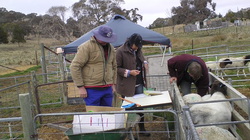
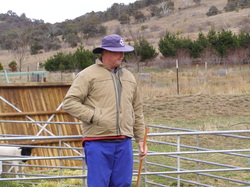
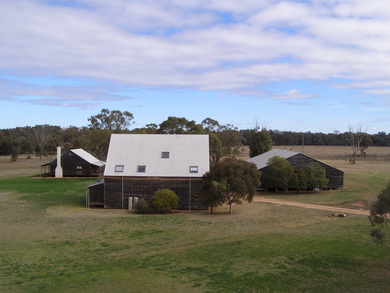
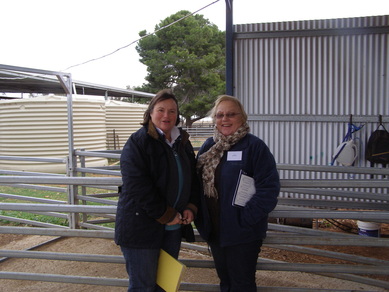
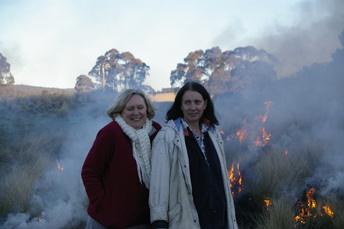
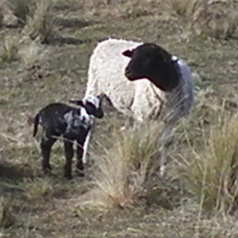
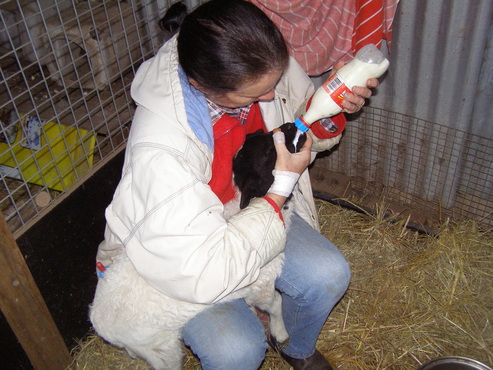
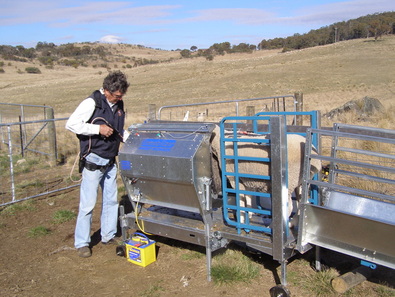
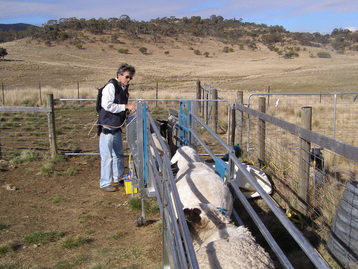
 RSS Feed
RSS Feed